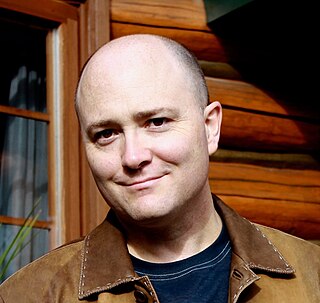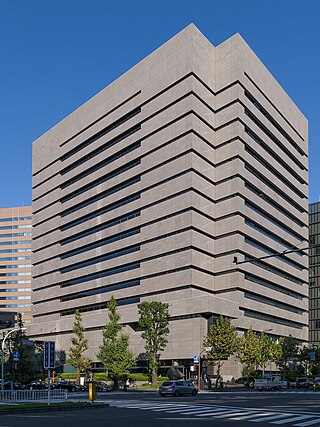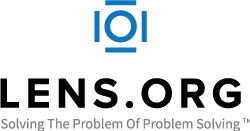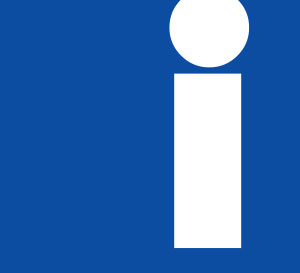Related Research Articles

Intellectual property (IP) is a category of property that includes intangible creations of the human intellect. There are many types of intellectual property, and some countries recognize more than others. The best-known types are patents, copyrights, trademarks, and trade secrets. The modern concept of intellectual property developed in England in the 17th and 18th centuries. The term "intellectual property" began to be used in the 19th century, though it was not until the late 20th century that intellectual property became commonplace in most of the world's legal systems.

A patent is a type of intellectual property that gives its owner the legal right to exclude others from making, using, or selling an invention for a limited period of time in exchange for publishing an enabling disclosure of the invention. In most countries, patent rights fall under private law and the patent holder must sue someone infringing the patent in order to enforce their rights.

The World Intellectual Property Organization is one of the 15 specialized agencies of the United Nations (UN). Pursuant to the 1967 Convention Establishing the World Intellectual Property Organization, WIPO was created to promote and protect intellectual property (IP) across the world by cooperating with countries as well as international organizations. It began operations on 26 April 1970 when the convention entered into force. The current Director General is Singaporean Daren Tang, former head of the Intellectual Property Office of Singapore, who began his term on 1 October 2020.

The European Patent Office (EPO) is one of the two organs of the European Patent Organisation (EPOrg), the other being the Administrative Council. The EPO acts as executive body for the organisation while the Administrative Council acts as its supervisory body as well as, to a limited extent, its legislative body. The actual legislative power to revise the European Patent Convention lies with the Contracting States themselves when meeting at a Conference of the Contracting States.
The Patent Cooperation Treaty (PCT) is an international patent law treaty, concluded in 1970. It provides a unified procedure for filing patent applications to protect inventions in each of its contracting states. A patent application filed under the PCT is called an international application, or PCT application.

The Eurasian Patent Organization (EAPO) is an international organization set up in 1995 by the Eurasian Patent Convention (EAPC) to grant Eurasian patents. The official language of the EAPO is Russian and its current president is Saule Tlevlessova. The headquarters of the EAPO is in Moscow, Russia.
The Trilateral Patent Offices, or simply the Trilateral Offices, are the European Patent Office (EPO), the Japan Patent Office (JPO) and the United States Patent and Trademark Office (USPTO). In 1983, these patent offices set up a programme of co-operation in an effort to "improve efficiency of the global patent system".
Intellectual property rights (IPRs) have been acknowledged and protected in China since 1980. China has acceded to the major international conventions on protection of rights to intellectual property. Domestically, protection of intellectual property law has also been established by government legislation, administrative regulations, and decrees in the areas of trademark, copyright, and patent. Although this IP framework is developing quickly, as of 2023 it remains less developed than most industrialized countries.

Norman Stephan Kinsella is an American intellectual property lawyer, author, and deontological anarcho-capitalist. His legal works have been published by Oxford University Press, Oceana Publications, Mises Institute, Quid Pro Books and others.
Japanese patent law is based on the first-to-file principle and is mainly given force by the Patent Act of Japan. Article 2 defines an invention as "the highly advanced creation of technical ideas utilizing the law of nature".

The PCT Newsletter is a monthly publication of the World Intellectual Property Organization (WIPO). It contains "up-to-date news about the Patent Cooperation Treaty (PCT)", which provides a system for filing international (patent) applications. The PCT Newsletter is published in English only. Important changes to the PCT are mentioned and explained in the PCT Newsletter.

The Lens, formerly called Patent Lens, is an online patent and scholarly literature search facility, provided by Cambia, an Australia-based non-profit organization. The Lens has been hailed as the “most comprehensive scholarly literature database, that exceeds in its width and depth two leading commercial databases combined”. The Lens is an agglomeration database, that takes bibliometric data from other databases and combines them into one, deduplicated and with unified search syntax. Also, unlike the competing databases, The Lens allows data exporting in JSON format with a superior granularity compared to RIS and CSV formats.

The Intellectual Property High Court, sometimes abbreviated IPHC, is a special branch of Tokyo High Court in the judicial system of Japan. It is based in Nakameguro, a district in Meguro Ward in Tokyo, Japan.
The Patent Prosecution Highway (PPH) is a set of initiatives for providing accelerated patent prosecution procedures by sharing information between some patent offices. It also permits each participating patent office to benefit from the work previously done by the other patent office, with the goal of reducing examination workload and improving patent quality.
The European Round Table on Patent Practice (EUROTAB) is described as "a pan-European group consisting of lawyers in the patent field", or a body where the national patent offices of the Contracting States of the European Patent Convention (EPC) and the European Patent Office come together to discuss differences in practice and see whether a harmonized approach is possible.
Intellectual property organizations are organizations that are focused on copyrights, trademarks, patents, or other intellectual property law concepts. This includes international intergovernmental organizations that foster governmental cooperation in the area of copyrights, trademarks and patents, as well as non-governmental, non-profit organizations, lobbying organizations, think tanks, notable committees, and professional associations.

The Agreement on Trade-Related Aspects of Intellectual Property Rights (TRIPS) is an international legal agreement between all the member nations of the World Trade Organization (WTO). It establishes minimum standards for the regulation by national governments of different forms of intellectual property (IP) as applied to nationals of other WTO member nations. TRIPS was negotiated at the end of the Uruguay Round of the General Agreement on Tariffs and Trade (GATT) between 1989 and 1990 and is administered by the WTO.


The Philosophy Documentation Center (PDC) is a non-profit publisher and resource center that provides access to scholarly materials in applied ethics, classics, philosophy, religious studies, and related disciplines. It publishes academic journals, conference proceedings, anthologies, and online research databases, often in cooperation with scholarly and professional associations. It also provides membership management and electronic publishing services, and hosts electronic journals, series, and other publications from several countries.
References
- 1 2 JIPA web site, Introduction. Consulted on May 1, 2009.
- ↑ Katsunosuke Maeda, Introductory Greetings on the Publication of the Founding Edition of the “Journal of JIPA”. On the Founding Issue of the “Journal of JIPA”, Journal of JIPA, Vol.1 No.1 2001, p. 2. The Internet Archive, archived on July 21, 2006.
- ↑ Katsunosuke Maeda, Introductory Greetings on the Publication of the Founding Edition of the “Journal of JIPA”. On the Founding Issue of the “Journal of JIPA”, Journal of JIPA, Vol.1 No.1 2001, p. 3.